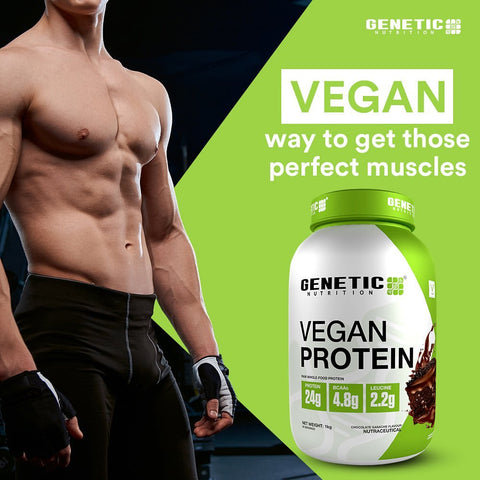
The various kinds of vegan protein powders and their benefits
, by SEO DIGITAL, 5 min reading time
Free Gifts With Every Order
Get additional 10% OFF Use Code: TAKE10
Super-Fast Delivery
Free Gifts With Every Order
Get additional 10% OFF Use Code: TAKE10
Super-Fast Delivery
Free Gifts With Every Order
Get additional 10% OFF Use Code: TAKE10
Super-Fast Delivery
Free Gifts With Every Order
Get additional 10% OFF Use Code: TAKE10
Super-Fast Delivery
Free Gifts With Every Order
Get additional 10% OFF Use Code: TAKE10
Super-Fast Delivery
Free Gifts With Every Order
Get additional 10% OFF Use Code: TAKE10
Super-Fast Delivery
Free Gifts With Every Order
Get additional 10% OFF Use Code: TAKE10
Super-Fast Delivery
Free Gifts With Every Order
Get additional 10% OFF Use Code: TAKE10
Super-Fast Delivery
Free Gifts With Every Order
Get additional 10% OFF Use Code: TAKE10
Super-Fast Delivery
Free Gifts With Every Order
Get additional 10% OFF Use Code: TAKE10
Super-Fast Delivery

, by SEO DIGITAL, 5 min reading time

There are a variety of protein powder choices available if you want to improve your protein intake. Although eating entire foods like meat, seafood, poultry, beans, nuts, and seeds is the best method to get enough protein, this is not always possible. Some individuals might be vegans or vegetarians, have dietary limitations, or simply prefer other non-animal sources of protein.
For those wishing to enhance their protein consumption, there are fortunately lots of vegan protein powders and plant-based protein powders available. Smoothies can be made more satisfying and convenient by adding protein powder, which is multifunctional.
In addition, you may add them to yoghurt, porridge, baked items, and even sauces. Anything you need to know about various vegan protein powders is provided here, along with advice on how to choose the best one for you.
The hemp seed is the source of hemp protein powder. As hemp powder contains all nine of the essential amino acids, it is a complete protein. Hemp powder is not only a fantastic source of protein, but it also contains omega-3 fatty acids, which are good for the heart. Together with vital minerals like magnesium, zinc, and iron, it is also rich in fibre.
A diet that is balanced should include enough of fibre. Furthermore helpful for keeping healthy gut bacteria, it helps with blood sugar, keeps you fuller longer, and promotes regular bowel motions.
Although hemp protein is typically safe, some people may develop negative side effects. Hemp may also cause allergies in some people. Then stay away from this vegan protein. As hemp protein contains lipids, it should be kept in the refrigerator after being opened to prevent the powder from going bad.
A complete protein, pea protein powder is created from yellow split peas and contains all nine necessary amino acids. Pea protein powder often has a moderate, earthy flavour. If you want the protein benefits without tasting the pea flavour, choose one of the brands that sell this protein powder in flavoured varieties.
The iron content in pea protein powders is high. Yet, iron from plant-based diets is typically not as quickly absorbed by the body as iron from sources found in animal foods.
In order to boost iron absorption, you can counteract this fact by pairing pea protein with meals high in vitamin C, such as citrus, cruciferous vegetables, strawberries, and tomatoes. You might also combine pea protein powder with a vitamin C supplement.
Consuming pea protein and engaging in exercise regimens have been demonstrated to boost muscular growth. Men who consumed pea protein while engaging in resistance training increased their muscle growth at a rate comparable to that of whey protein during a 12-week double-blind, randomised, and placebo-controlled research.
Another study found that whey protein or pea protein supplements could improve muscle gain, body composition, and strength when combined with high-intensity functional exercise. Many people find pea protein powder to be a wonderful alternative, but if you have a pea allergy or intolerance, you should pick a different vegan protein powder.
The source of brown rice protein powder is, you guessed it, brown rice. Although brown rice contains all nine necessary amino acids, it is not regarded as a complete protein due to its low lysine content. The protein from brown rice tastes nutty.
Some companies soak brown rice in water for a while to give it time to sprout and ferment, which will boost its nutritional value.When brown rice is germinated, nutrients like fatty acids are made more available while anti-nutrients like tannins and phytates are diminished.
For the majority of people, brown rice makes a good protein powder. However, it should be avoided if you have a brown rice allergy or intolerance.
In addition to being high in protein, soy protein is a complete protein since it contains all nine essential amino acids. The necessary amino acids that the body need must be obtained from food because it cannot produce them on its own. In addition to vitamins and minerals including calcium, iron, zinc, and B vitamins, soy protein also includes fibre.
Isoflavone, an antioxidant found in soy, can affect oxidative stress. When the body's antioxidants and free radicals are out of equilibrium, oxidative stress results.
Moreover, soy protein can lower blood pressure and hypertension. To fully comprehend the relationship between soy protein and cardiovascular health, more research is required.
It has been proven that soy protein aids in muscle growth. Branded Chain Amino Acids, or BCAAs, are abundant in soy protein. BCAA helps in muscular growth.
Certain plants, like soy, contain phytoestrogen, which functions and is structurally similar to oestrogen. Isoflavones, which are present in soy, are one of the numerous forms of phytoestrogen that have been the subject of the most investigation. There have previously been worries that the phytoestrogens in soy may be harmful to men's levels of testosterone and oestrogen.
Concerns about the BRCA gene and breast cancer have also been raised in relation to soy protein consumption. One scientific investigation revealed that soy protein eaters had a lower risk of developing breast cancer.
These research show that soy protein need not be avoided. However, if someone has allergies or an intolerance, they might wish to avoid soy. Before using soy protein powder, always consult a physician or qualified nutritionist. They can look through your medical background and assist you in choosing what is best for you.